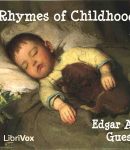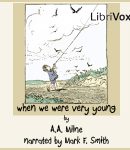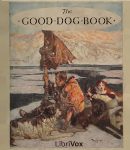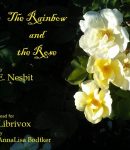
Dreams Collection 1 – Stories and Poems
This is a collection of 20 stories and/or poems, contributed by Librivox volunteers, pertaining to dreams. ( ~ Michele Fry) [chương_files]

This is a collection of 20 stories and/or poems, contributed by Librivox volunteers, pertaining to dreams. ( ~ Michele Fry) [chương_files]

This is a collection of 49 poems read in English by LibriVox volunteers for February 2020. [chương_files]

Not nursery rhymes, but poems about different scenes of childhood. Poems about Grandpa, Grandma, story time, castor oil, “Wait till your pa comes home!”, and many more. These are sure to evoke nostalgia, lots of smiles, and maybe a couple sighs or tears. – Summary by TriciaG [chương_files]

This is a collection of 63 poems read in English by LibriVox volunteers for April 2020. [chương_files]

This is a collection of 51 poems read in English by LibriVox volunteers for March 2020. [chương_files]

A.A. Milne wrote many poems to entertain his young son, Christopher Robin Milne, who appears to have been about three when “When We Were Very Young” was published. The book is a collection of 45 poems that celebrate a world and a point of view that a very young person could understand and enjoy. It became a best-seller. Christopher Robin is introduced as a character in some of the poems. We first meet him in the Preface, “Just Before We Begin.” In it we learn of a swan which he feeds upon a lake and who he has named “Pooh.” Milne comments on the fortuitous rhyming of that name with the lowing of the local cattle, “moo,” and intends us to believe that that led to the idea of writing the poems that comprise “When We Were Very Young.” Later, of course, this name became attached to a rather lovable bear who had whole books of his adventures written by Milne over the next few years. We will meet that teddy bear in one of poems of this book!- Summary by Mark Smith [chương_files]

The order of the poems have been arranged according to age from first through eight grade. Grades I – IV are contained in part 1. This collection of poems in part 2 begins with Grade V and Elegy Written in a Country Churchyard by Thomas Gray. Grade VI begins with The Barefoot Boy by John G. Whittier. Grade VII begins with Ye Mariners of England by Thomas Campbell. Grade VIII begins with The Rhodora, On Being Asked, “Whence is the Flower” by Ralph W. Emerson. – Summary by Linette G [chương_files]

A collection of adult stories and poems – sad, humorous, and adventurous – about Man’s Best Friend. NOTE: Most of these selections contain violence that will be objectionable to some listeners. – Summary by TriciaG [chương_files]

Donne’s Style In John Donne’s day, a satire was such a poem as a satyr might compose. Satyrs were rough, savage creatures in Greek mythology, human to the waist but goat from there down. That is the reason that Donne’s style in these poems exceeds his normal difficulty in syntax, vocabulary, thought, and meter. His age enjoyed untangling such puzzles, and some poets cultivated obscurity as an art, called asprezza. Wordplay like “while bellows pant below” (Satyre 2), where the same syllables, stressed differently, produce two different words almost side by side, entertained them. An acoustical analogue to obscurity, Donne’s rhymes are often deliberately lame, while his rhythms nearly defy scansion and yet refuse to become mere prose. By keeping the drum beat just barely audible, he makes us feel that we are stumbling, out of step—neither marching nor merely walking. Why was this abuse of the reader enjoyable? Perhaps for the same reason that grafitti appeals to some people. At first glance Donne appears lax, but in fact he is naughty; not undisciplined but rebellious; he does not fail to abide by the rules but rather gives the impression of breaking them. Metempsychosis The poem appears to be incomplete, its “First Song” having no counterpart, no “Second Song.” Similarly its promise to end by identifying what celebrity the soul in question now inhabits is never fulfilled. On the contrary, the poem’s initial epic pretentions founder at the second generation of mankind rather than tracing human history from the Garden […]

Although Edith Nesbit is best known for her innovative children’s books and classic ghost stories, she was at heart a poet. She began writing poetry at the age of 14 and published over 20 volumes of poetry during her lifetime. Her poetry was praised by authors and poets such as Algernon Swinburne, Oscar Wilde, and literary critic, Andrew Lang. Although her timeless poetry is little read today, she still ranks at 323 of the top 500 poets. – Summary by AnnaLisa [chương_files]
Copyright © 2024 | FreeAudible